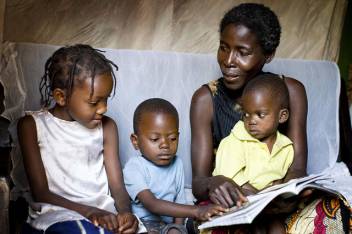 The 20th International AIDS Conference concluded in Melbourne, Australia a few days ago. Many would say that the conference was a major step towards the “end of AIDS by 2030” target set up by UNAIDS and other global stakeholders and organisations. A number of concerns and issues were touched upon during the conference to pave the way for the future of the fight against AIDS.
The 20th International AIDS Conference concluded in Melbourne, Australia a few days ago. Many would say that the conference was a major step towards the “end of AIDS by 2030” target set up by UNAIDS and other global stakeholders and organisations. A number of concerns and issues were touched upon during the conference to pave the way for the future of the fight against AIDS.
However, ageing and HIV again remained completely out of focus. It was as if this generation’s AIDS-free dream had forgotten older people living with HIV.
Discussions on HIV and post-2015
Being a keen ageing activist at AIDS 2014, I tried to find links with events and organisations working on HIV and ageing aspects. But there was very little presence of HIV and ageing at AIDS 2014, which made the discussions on the pandemic and its eradication incomplete.
The post-2015 development agenda was discussed in detail in a number of sessions during the conference. We certainly understand that the post-2015 agenda is a significant step in the future of global development and the fight against AIDS is crucial in meeting the proposed Sustainable Development Goals (SDGs).
According to Helen Clark, the Head of UNDP, the UN Secretary General will present a “synthesis report” to the UN general assembly on the post-2015 process that will highlight 17 key areas for our future work. This will help in setting up HIV-related priorities within the upcoming Sustainable Development Goals (SDGs).
The new post-2015 agenda will be approved at the UN General Assembly in September 2015 and activists are calling for a commitment to create an HIV-free generation globally, with a focus on equity and eradicating discrimination.
All age groups should be treated equally
Will ageing be one of the key priorities in the approach ahead? Will the concerns of older people and their special needs in the context of the HIV pandemic get adequate consideration? That remains to be seen.
Former US President, Bill Clinton, spoke passionately at AIDS 2014 on the progress made on AIDS control around the world. “The end of the AIDS pandemic is over the horizon”, said Clinton and highlighted the persisting challenges of babies born with the infection with an estimated 3.3 million children living with the virus. The concern is valid and serious.
Similar is the concern relating an estimated 4.2 million older people living with HIV globally. That concern, unfortunately, draws very little attention and thus older people remain neglected in the response to AIDS worldwide.
HIV pandemic is ageing
AIDS in older age has its own characteristics, with multiple health conditions affecting the body at the same time. Therefore, medically speaking, work on geriatric AIDS must get more focus, more resources and more research.
As the fight to end the HIV pandemic progresses, one can only imagine the disease ageing further and more people living with AIDS in their 50s and 60s. The battle against AIDS is not going to be fully won until older people’s concerns are taken into consideration. They are an equally significant population group as any other.
The end of AIDS by 2030? Only if older people are included.
Find out more about our work on HIV and ageing.
